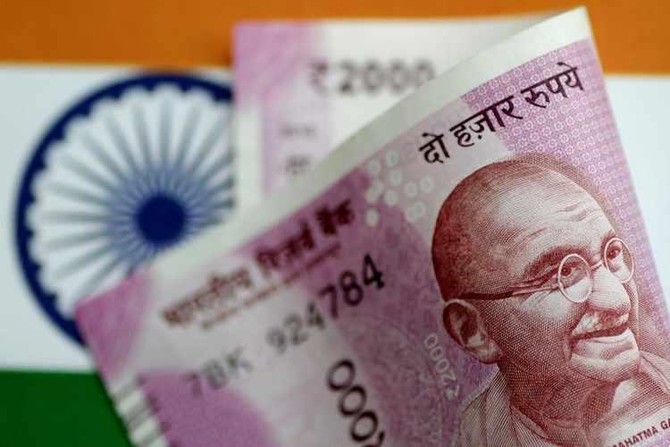MUMBAI: In late June, one of India’s top wind power equipment makers, Inox Wind, was dragged into insolvency courts by a logistics handler over unpaid dues of $88,000. Two weeks on, the matter was settled, with dues paid off.
The case illustrates how small creditors and vendors, previously at the mercy of large debtors, are now using India’s new bankruptcy code as a pressure ploy to secure payment of dues that would earlier have been all but impossible to recover.
India overhauled bankruptcy laws last year with the main goal of helping banks tackle a $150-billion bad loan issue that is crimping growth in the economy.
Less than a year on, insolvency professionals say it is vendors and small suppliers, also referred to as operational creditors, who are using the new rules as leverage to recover dues much more effectively than banks owed far larger sums.
“It is not necessarily a negative thing, but it was not the objective of the new code,” said Ashish Chhawchharia, a partner at Grant Thornton who works on insolvency cases.
The new rules give any creditor owed 100,000 rupees ($1,560) the right to drag a multi-billion dollar company to court.
They lay out a stringent timeline for resolution, or force debtors into automatic liquidation, giving outsize influence to vendors and suppliers who would normally rank well below secured financial creditors, such as lender banks, in any bankruptcy process.
But they have also stirred fears of a tsunami of cases jeopardizing the plans of banks with billions of dollars at stake, and which are forced to join such proceedings.
“If an operational creditor initiates a process, that basically brings in unwilling financial creditors, even if they do not deem it the right time or course of action,” said leading insolvency lawyer Sumant Batra.
The court that handles such bankruptcy cases, the National Company Law Tribunal (NCLT), should first test the intent of any operational creditor making a bankruptcy plea, he added.
“NCLT has to hold an enquiry at the beginning to determine whether this has been filed only for recovery of debt, or whether this has been actually filed for a resolution or a liquidation process.”
Swedish telecom equipment firm Ericsson became the first high-profile foreign vendor to use the tool, filing a petition this week to drag Indian telecom carrier Reliance Communications to insolvency courts over unpaid dues of $180 million.
By comparison, RCom, as the company is widely known, owes nearly $7 billion to its banks, who have agreed to a standstill over its servicing obligations until year end, while the company attempts to restructure.
RCom said it plans to challenge the Ericsson plea.
About 1,000 insolvency petitions have been triggered since early 2017, when the first case was admitted under the new rules, but consultant EY estimates about 80 percent of these were withdrawn following out-of-court settlements.
About 60 percent of the cases brought to the NCLT are initiated by operational creditors, industry estimates show.
Sanjay Ruia, a Mumbai chartered accountant who took a holiday tour operator to bankruptcy court over unpaid audit and advisory fees, said the law had made it easier for creditors like himself who would formerly have struggled to recover dues.
Still, many fear the arm-twisting tactics could make life tougher for secured financial creditors, who must make steep balance-sheet provisions for loans to borrower firms entangled in bankruptcy proceedings.
For its part, Inox Wind, which settled the dispute with the logistics firm, remains a “solvent company with excellent financial health” and has been regular in servicing all commitments to its lenders, it said in a statement in July.
Small creditors use India’s new bankruptcy rules to put the squeeze on big players
Small creditors use India’s new bankruptcy rules to put the squeeze on big players

Open Forum Riyadh to discuss digital currency, AI, and mental health

- The event will run in parallel to the WEF’s Special Meeting on Global Collaboration
LONDON: The Open Forum Riyadh — a series of public sessions taking place in the Saudi capital on Sunday and Monday — will “spotlight global challenges and opportunities,” according to the organizers.
The event, a collaboration between the World Economic Forum and the Saudi Ministry of Economy and Planning, will run in parallel to the WEF’s Special Meeting on Global Collaboration, Growth and Energy for Development, taking place in Riyadh on April 28 and 29.
“Under Saudi Vision 2030, Riyadh has become a global capital for thought leadership, action and solutions, fostering the exchange of knowledge and innovative ideas,” Faisal F. Alibrahim, Saudi minister of economy and planning, said in a press release, adding that this year’s Open Forum being hosted in Riyadh “is a testament to the city’s growing influence and role on the international stage.”
The forum is open to the public and “aims to facilitate dialogue between thought leaders and the broader public on a range of topics, including environmental challenges, mental health, digital currencies, artificial intelligence, the role of the arts in society, modern-day entrepreneurship, and smart cities,” according to a statement.
The agenda includes sessions addressing the impact of digital currencies in the Middle East, the role of culture in public diplomacy, urban development for smart cities, and actions to enhance mental wellbeing worldwide.
The annual Open Forum was established in 2003 with the goal of enabling a broader audience to participate in the activities of the WEF, and has been hosted in several different countries, including Cambodia, India, Jordan and Vietnam.
The panels will feature government officials, artists, civil-society leaders, entrepreneurs, and CEOs of multinationals.
This year’s speakers include Yazeed A. Al-Humied, deputy governor and head of MENA investments at the Saudi Pubic Investment Fund; Princess Reema Bandar Al-Saud, Saudi Arabia’s ambassador to the US; and Princess Beatrice, founder of the Big Change Charitable Trust and a member of the British royal family.
Michele Mischler, head of Swiss public affairs and sustainability at the WEF, said in a press release that the participation of the public in Open Forum sessions “fosters diverse perspectives, enriches global dialogue, and empowers collective solutions for a more inclusive and sustainable future.”
Meituan looks to hire in Saudi Arabia, indicating food delivery expansion

SHANGHAI: Chinese food delivery giant Meituan is seeking to hire staff for at least eight positions based in Riyadh, in a sign it may be looking to Saudi Arabia to further its global expansion ambitions, according to Reuters.
The jobs ads, which is hiring for KeeTa, the brand name Meituan uses for its food delivery operations in Hong Kong, is seeking candidates with expertise in business development, user acquisition, and customer retention, according to posts seen by Reuters on Linkedin and on Middle Eastern jobs site Bayt.com.
Meituan did not immediately respond to a request for comment by Reuters on its plans for Saudi expansion.
Bloomberg reported earlier on Friday that the Beijing-based firm would make its Middle East debut with Riyadh as the first stop.
Since expanding to Hong Kong in May 2023, Meituan’s first foray outside of mainland China, speculation has persisted that its overseas march would continue as the firm searches for growth opportunities, with the Middle East rumored since last year to be one area of possible expansion.
“We are actively evaluating opportunities in other markets,“ Meituan CEO Wang Xing said during a post-earnings call with analysts last month.
“We have the tech know-how and operational know-how, so we are quietly confident we can enter a new market and find an approach that works for consumers there.”
IMF opens first MENA office in Riyadh

RIYADH: The International Monetary Fund has opened its first office the Middle East and North Africa region in Riyadh.
The office was launched during the Joint Regional Conference on Industrial Policy for Diversification, jointly organized by the IMF and the Ministry of Finance, on April 24.
The new office aims to strengthen capacity building, regional surveillance, and outreach to foster stability, growth, and regional integration, thereby promoting partnerships in the Middle East and beyond, according to the Saudi Press Agency.
Additionally, the office will facilitate closer collaboration between the IMF and regional institutions, governments, and other stakeholders, the SPA report noted, adding that the IMF expressed its appreciation to Saudi Arabia for its financial contribution aimed at enhancing capacity development in its member countries, including fragile states.
Abdoul Aziz Wane, a seasoned IMF director with an extensive understanding of the institution and a broad network of policymakers and academics worldwide, will serve as the first director of the Riyadh office.
Saudi minister to deliver keynote speech at Automechanika Riyadh conference

RIYADH: Saudi Arabia’s Deputy Minister of Investment Transaction Saleh Al-Khabti is set to deliver the keynote speech at a global automotive aftermarket industry conference in Riyadh.
Set to be held from April 30 April to May 2 in the Saudi capital’s International Convention and Exhibition Center, Automechanika Riyadh will welcome more than 340 exhibitors from over 25 countries.
Al-Khabti will make the marquee address on the first day of the event, which will also see participation from Aftab Ahmed, chief advisor for the Automotive Cluster at the National Industrial Development Centre, Ministry of Industry and Mineral Resources.
Saudi Arabia’s automotive sector is undergoing a transformation, with the Kingdom’s Public Investment Fund becoming the major shareholder in US-based electric vehicle manufacturer Lucid, and also striking a deal with Hyundai to collaborate on the construction of a $500 million-manufacturing facility.
Alongside this, Saudi Arabia’s Crown Prince Mohammed bin Salman launched the Kingdom’s first electric vehicle brand in November 2022.
Commenting on the upcoming trade show, Bilal Al-Barmawi, CEO and founder of 1st Arabia Trade Shows & Conferences, said: “It is a great honor for Automechanika Riyadh to be held under the patronage of the Saudi Arabian Ministry of Investment, and we’re grateful for their continued support as the event goes from strength-to-strength.
“The insights and support we’ve already received have been invaluable, and we look forward to continuing this relationship throughout the event and beyond.”
This edition of Automechanika Riyadh will feature seven product focus areas, including parts and components, tyres and batteries, and oils and lubricants.
Accessories and customizing, diagnostics and repairs, and body and paint will also be discussed, as well as care and wash.
Aly Hefny, show manager for Automechanika Riyadh, Messe Frankfurt Middle East, said: “The caliber of speakers confirmed to take part at Automechanika Riyadh is a testament to the event’s growth and prominence within the regional automotive market.
“We have developed a show that goes beyond the norm by providing a platform that supports knowledge sharing and networking while promoting the opportunity to engage with key industry experts and hear the latest developments, trends and innovations changing the dynamics of the automotive sector.”
Aramco-backed S-Oil expects Q2 refining margins to remain steady then trend upward

SEOUL: South Korea’s S-Oil forecast on Friday that second-quarter refining margins will be steady, supported by regular maintenance in the region, then trend upward in tandem with higher demand as the summer season gets underway, according to Reuters.
Over the January-March period, the refiner said it operated the crude distillation units at its 669,000-barrel-per-day oil refinery in the southeastern city of Ulsan at 91.9 percent of capacity, compared with 94 percent in October-December.
S-Oil, whose main shareholder is Saudi Aramco, plans to shut its No. 1 crude distillation unit sometime this year for maintenance, the company said in an earnings presentation, without specifying the time.
















